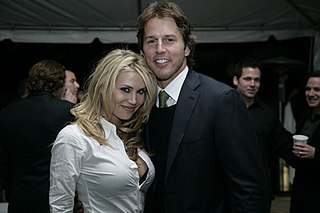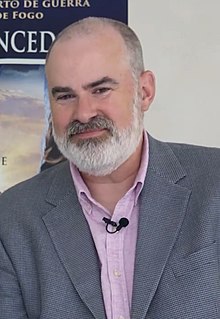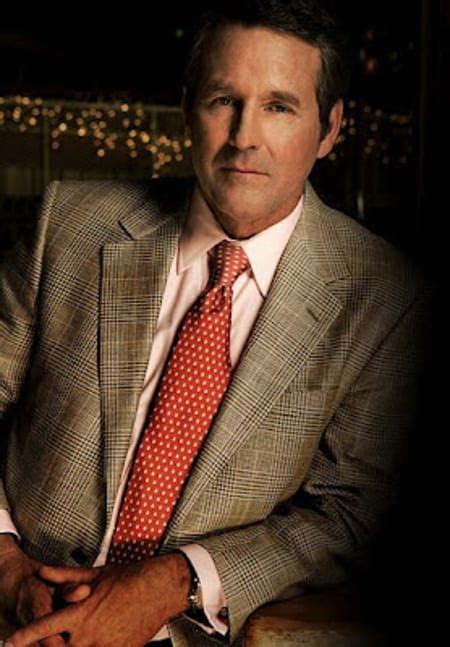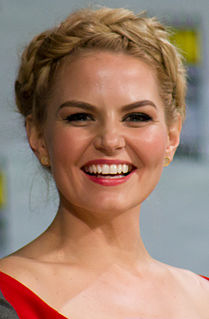A Quote by Charlie Kaufman
If I were doing somebody else's script or I adapted a book by Philip Roth, on set there could be a million different interpretations of the material and people could argue with me. Certainly on Synecdoche, New York we had discussions and arguments, but I felt like I had authority because I'm a writer.
Related Quotes
Doing 'All Good Things' really felt like I was acting for myself rather than anyone else. It gave me a freedom I'd never had before, or knew I had, to do whatever I want to, and to argue my opinions and not just feel like the cute girl on set or the girl in a boy's club. I figured out how I could be both. And it's been different ever since.
I hadn't had a book in my hands for four months, and the mere idea of a book where I could see words printed one after another, lines, pages, leaves, a book in which I could pursue new, different, fresh thoughts to divert me, could take them into my brain, had something both intoxicating and stupefying about it.
Well, at the end of our movie Fireproof, we released a book that my brother Stephen and I wrote called The Love Dare. It was for couples. That book had a much larger impact than we expected. As a matter of fact, if I could use the term "overwhelmed," we were. The book went on to become a New York Times bestseller and sold over five-million copies and is now in 28 different countries and languages. So, we were blessed and just surprised at how well that did.
I like intersections. They're the nature of New York, and there's always the possibility that when you're at one you can meet someone new. Have I ever met anyone new at an intersection? No, but I like the idea of it. I like cities because if you're stopping on the corner to wait for a light to change, there's the possibility that you and somebody else can talk. And if you and that somebody else start to talk, then you can start to argue, and if you start to argue, you might start a revolution.
I remember reading this thing that Elizabeth Taylor wrote. She had her first kiss in character. On a movie set. It really struck me. I don't know how or why, but I had this sense that if I wasn't really careful, that could be me. That my first kiss could be in somebody else's clothes. And my experiences could all belong to someone else.
I think now that I've tried directing, I'm not interested in doing adaptations anymore. I could do an adaptation of someone else's work that I would write, but the idea of taking someone else's material entirely doesn't interest me. One of the things that I found really helpful, at least in my mind - and I've never discussed this with the actors or with the people I work with - is that being a neophyte in directing, I feel like I have a kind of authority simply because I'm the writer as well.
A lot of the reason I left New York, in addition to being so broke, was that I just felt I was becoming provincial in that way that only New Yorkers are. My points of reference were really insular. They were insular in that fantastic New York way, but they didn't go much beyond that. I didn't have any sense of class and geography, because the economy of New York is so specific. So I definitely had access and exposure to a huge variety of people that I wouldn't have had if I'd stayed in New York - much more so in Nebraska even than in L.A.
I had to share a room with my sister, who is five and a half years older than I am. We didn't get along well, and I felt that I had no privacy. So books were my privacy, because no one could join me in a book, no one could comment on the action or make fun of it. I used to spend hours reading in the bathroom -- and we only had one bathroom in our small apartment!
For me, in general, it's always about the material. Obviously, it's about the material and hoping that someone wants to hire me for a job, too, but I've certainly seen films like 'Orphan' and movies like that where I know that if I had had the opportunity to read that script or had an opportunity to do it, I would have wanted to do it.
Roth Unbound is filled with intelligent readings and smart judgments. Because of the author's sympathy and sharp mind, it offers real insight into the creative process itself, and into Philip Roth's high calling as a great American artist. The book is, in some ways, a radical rereading of Roth's life and his work. It is impossible, by the end, not to feel a tender admiration for Roth as a novelist and indeed for Claudia Roth Pierpont as an empathetic and brilliant critic.





































